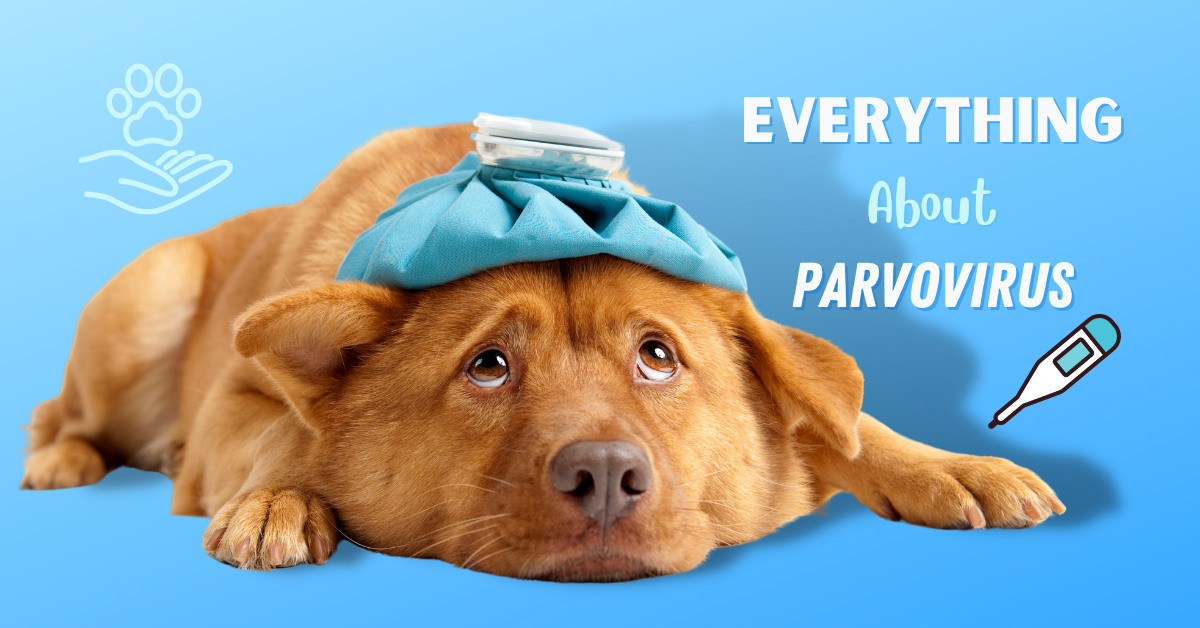Parvovirus: Symptoms, Treatment, and Prevention

There is nothing more precious than a Labrador puppy. But with puppies come the sometimes worrisome health conditions. Puppies are susceptible to more health problems because their immune systems aren’t mature. Most puppies can fight back on illness fairly easily, but Parvovirus (Parvo) is extremely dangerous to puppies and can sometimes be fatal. This is why it needs to be taken very seriously and discussed more with new dog owners. Here’s everything you need to know about Parvovirus in dogs and puppies:
What is Parvovirus?
Parvovirus is an extremely contagious disease in dogs that attacks the cells surrounding their small intestine. It is caused by the strains CPV-2a, CPV-2b, and CPV-2c. Parvo prevents the small intestine from working properly (i.e. absorbing nutrients), which can be very problematic if left untreated. The small intestine can begin to break down from bacterium and cause widespread infection throughout a dog’s body.
Spreading?
Parvovirus is often contracted and spread from dogs sniffing and/or eating feces. Parvovirus particles can live in a dog’s poop until 3-6 weeks after recovery and infect an unvaccinated dog easily. Parvo can also be spread by interaction with infected animals (i.e. other dogs, foxes, raccoons, skunks, etc.) or an infected object (i.e. a water bowl).
What Dogs Are More At Risk?
Parvo can be seen in all dogs, but puppies less than 4 months old are the most at risk due to their newness to the world of vaccinations. Unvaccinated dogs have a 12.7 times more likely chance of being hospitalized with Parvovirus. This makes the need for vaccination crucial for prevention.
Some breeds are also more susceptible to Parvo such as Labrador Retrievers, German Shepherds, Yorkshire Terriers, etc.
Parvovirus Symptoms
Symptom severity can depend on the dog, but most signs of infection appear 2-14 days after infection. Symptoms and signs include:
- Low energy/depression
- Poor appetite or a weakened state
- Vomiting or abdominal pain/bloating
- Fever
- Eye redness
- Excessive or bloody diarrhea
- Rapid heartbeat and shortness of breath
If you notice any of these symptoms in your dog, please take them to the vet ASAP as the disease could quickly turn deadly if left untreated for too long. It may also be necessary to call ahead to let your veterinarian know you suspect Parvovirus so they can quarantine space for your dog.
Diagnosis
Once your dog is suspected to have Parvovirus, your vet will perform a test such as the Fecal ELISA Test or a blood test to determine their exact diagnosis and severity. The ELISA test is the most common test for Parvo in dogs and it requires testing your dog’s fecal matter with a color-changing chemical to determine traces of Parvo. A blood test will measure white blood cells. Since Parvo begins attacking a dog’s white blood cells and bone marrow, a low cell count will indicate the disease.
Parvovirus Treatment
Once your dog is diagnosed, treatment can begin, and quickly! Some common treatments for Parvovirus include:
- Antibiotics: Available as an injectable or IV, antibiotics are used with a damaged gastrointestinal tract. Antibiotics help with the prevention of blood poisoning.
- Antacids are used in injectables to heal ulcers caused by Parvo. Ulcers can occur in a dog’s small intestine, stomach, or esophagus.
- Anti-nausea medication helps increase appetite and prevent excessive vomiting.
- Fluid Therapy is most common with IV fluids to keep your dog hydrated.
- Nutrition Support is given when dogs are unable to eat on their own. Parvo dogs are either hand fed or syringe-fed a veterinarian-approved or prescribed diet. Some recommended foods are white rice, potatoes, and softened chicken.
Most dogs (90%) with Parvovirus that don’t get treated will pass within 48-72 hours. Veterinarian care is extremely dire in this situation and Parvovirus is not recommended to be treated at home.
Prevention
Parvovirus is preventable and avoidable. Protect against the disease by:
- Completing your puppy’s vaccination rounds at about 6, 10, and 14 weeks of age for Parvo.
- Complete the Parvovirus booster shots 1 year after the first 3 rounds of vaccinations. After, your dog will need a new booster every 3 years following.
- Disinfect bowls, blankets, towels, crates, etc. after your dog has been infected.
- Be vigilant about what dogs (unvaccinated) your own are around and what they eat!